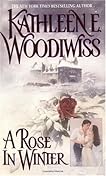Small town politics, particularly in the South, has been fodder for writers for generations. Why should I be any different?
Almost as soon as we moved into our home, my husband was targeted by the Old Guard in our little town for signing up for public service. Dale, a small-town boy with a lifelong passion for politics, was savvy enough to know that the absolute LAST thing he wanted to do was run for City Council within ten years of moving here. With no family and no ties to the area, we were outsiders. We don’t share the same history and memories as the other three hundred eighty-nine residents of this tiny rural hamlet. Why, we’d be little better than carpet-baggers!
But, five years on, we’ve watched changes come into this sweet little Mayberry-esque town that we’ve grown to love. Not all of them are good changes. In fact, we’ve watched the grocery be replaced by a biker bar a scant block and a half from our home. The sexual predators we left Tampa to escape now count among our next door neighbors. Where I once had the idyllic vision of my children riding bikes to town to purchase an ice cream, I’m now afraid to let them out of the yard. Where I once strolled with my children, I am now afraid to pass, having been accosted by drunks on more than one occasion. Where we used to sit on the front porch late in the evenings and enjoy the quiet of a Summer’s evening, we now shut ourselves tightly in and turn up the TV to drown out the bar noise. The town has been through three City Clerks and as many Chiefs of Police. Reputable businesses are closing and liquor stores and tattoo parlors are vying for a market share in our town.
The City Council, looking at revenue generated, without looking at the cost in quality of living and declining property values, seems content to approve any vice-based industry that seeks to open here. Indeed, if we were looking to purchase our home today, much as we love it, we’d pass, simply because of what the City Council has allowed the neighborhood to fall into.
My husband has watched and encouraged those who have deeper roots into the community to stand fast. But he can’t take it any longer. I don’t know what the straw was that broke the camel’s back, but this election cycle, when the Old Guard came knocking, my husband agreed to run.
Dale Hicks for Barwick City Council.
- His platform? To bring the Council into compliance with its Charter under the laws of the State.
- His vision? A return to the idyllic town we fell in love with and chose for our children to call their Hometown.
I’m not really keen on being a politician’s wife. The demands on one’s time are intrusive. But I support him on his bid for City Council because I want to be able to stay here and raise my family here. If our town continues down the road the current Council is following, I’m afraid of where it might lead. I’m fairly certain it is to a place I do not want to go. If I wanted to raise my children in an environment filled with vice, predators, and fear, I would have stayed in Tampa.
